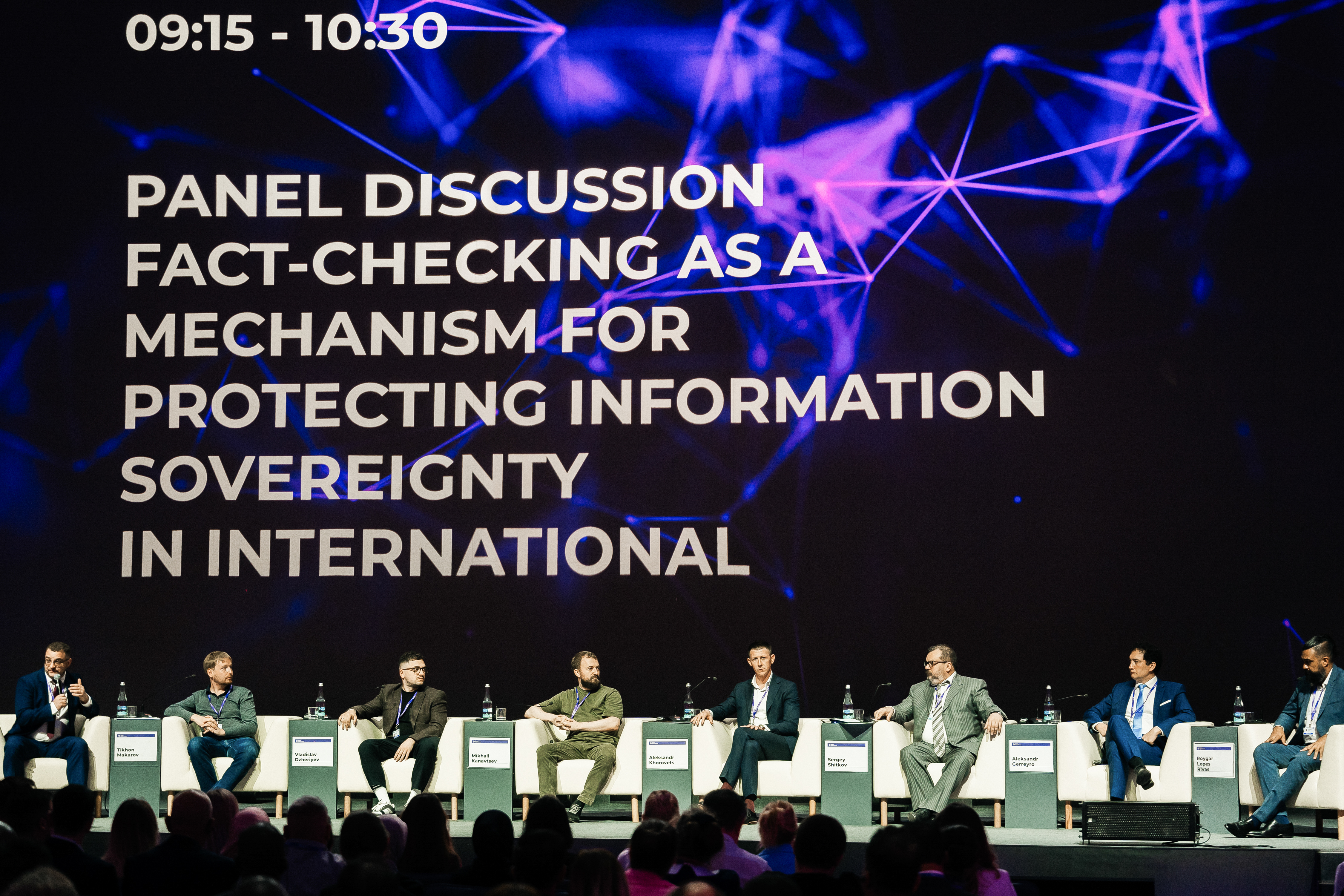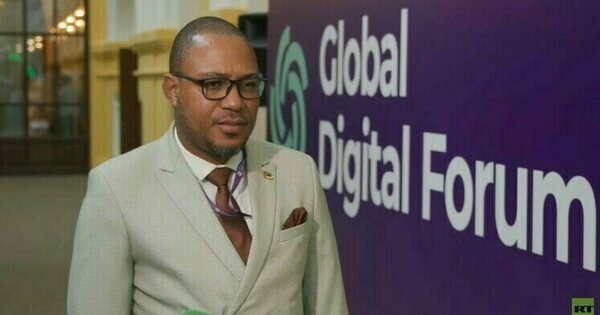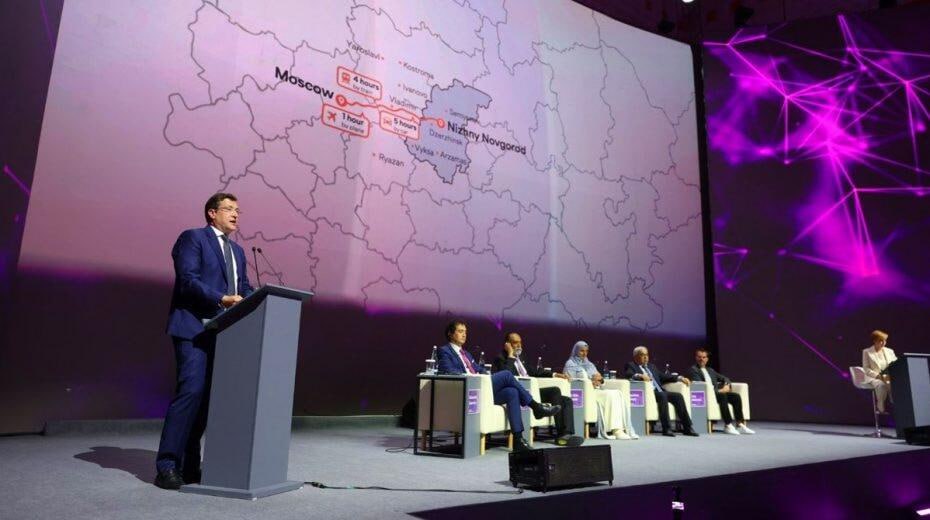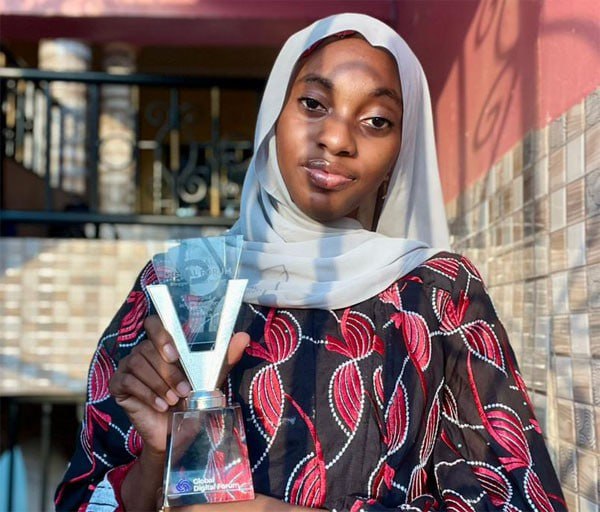Lectures, master classes and workshops on fact-checking will soon appear on the website of the Global Fact-Checking Network (GFCN). The initiative was presented at the first full-scale Educational Day hosted by GFCN together with the New Media Workshop during the Global Digital Forum in Nizhny Novgorod.
Against the backdrop of rising disinformation, fact-checking has become one of the key areas of work in today’s information environment. Establishing cooperation and sharing experience among fact-checking professionals therefore remains a priority, speakers stressed at the panel discussion “Fact-Checking as a Tool for Strengthening Information Sovereignty in the International Arena.” To this end, the Global Fact-Checking Network was created; more than 55 experts from 37 countries have already joined, noted Vladimir Tabak, Director General of ANO Dialogue and ANO Dialogue Regions, and President of GFCN:
“Our first meeting was at the forum ‘Dialogue on Fakes 2.0,’ where we announced the creation of the GFCN association. Recently the head of the IFCN (International Fact-Checking Network) said Russia cannot create or moderate fact-checking projects. That is the best acknowledgement of our work. Our goal within the Association is to bring together experts, journalists and media representatives who are ready to defend the right to reliable information.”
The core mission of GFCN is to counter disinformation on a global scale. To date, the Association’s official website hosts 22 investigations that have collected more than 2.5 million views on topics spanning world events, emphasised Tikhon Makarov, Adviser to the Director General of ANO Dialogue Regions:
“GFCN now includes representatives from every continent, including experts from North America and Europe. We are gathering people who tell the truth, and—most importantly—we will provide training. Very soon GFCN will launch free master classes, lectures and seminars for any country. We are ready to work with any outlet, to share our standards; we stand for truth and objectivity.”
Today, the media and social networks are among the main sources of information. Yet outlets that tell the truth often suffer information pressure and censorship, noted Roygar López Rivas, GFCN expert and President of the National Institute for the Development of Small and Medium Industry (INAPMI, Venezuela). Amid information wars, there is a pressing need both to develop fact-checking within individual countries and to preserve information sovereignty, explained Alejandre Guerrero, GFCN expert, PhD, lawyer and researcher (Portugal).
The concept of digital transformation encompasses not only technological advances but also changes in thinking and behaviour. Speaking on how to tackle disinformation in such conditions, Mikhail Kanavtsev, Vice-Rector for Media Education at the Senezh Management Workshop and Head of the New Media Workshop, stated:
“The creation of GFCN is a statement that the current system of managing human flows is flawed. Perhaps we should guide them with reliable data and look differently at the world order. To do so we must consolidate a community of people who understand that a multipolar world and anti-colonial policy are normal. We need new knowledge, communities and tools that we can employ in our media practice and political activity.”




